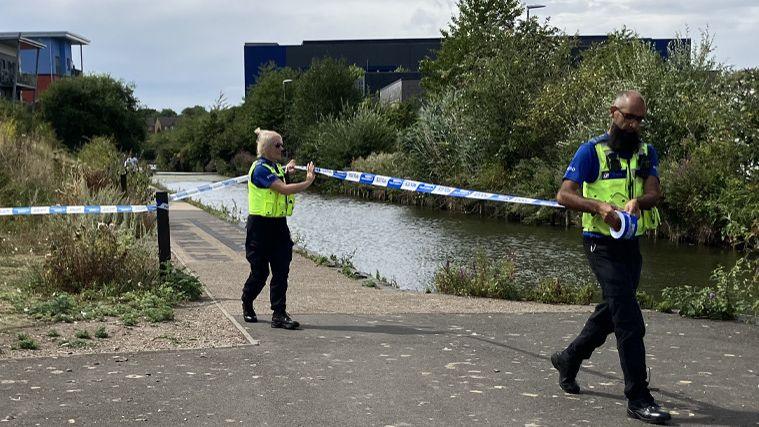Canal charity makes funds plea after toxic spill
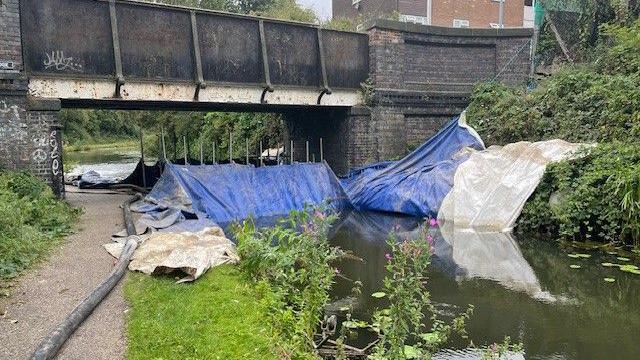
Work is ongoing to contain the chemical spill and clean up the Walsall canal
- Published
A charity that is leading the clean-up after a canal was devastated by a major spill of sodium cyanide, has launched a £10,000 crowdfunder to pay for the work.
About 4,000 litres (879 gallons) of toxic chemicals leaked into the Walsall Canal at Pleck last week, leading to 12 miles of waterway being cordoned off and the deaths of scores of fish.
The Canal & River Trust (CRT) said approximately 90kg (198lbs) of fish carcasses have since been removed and taken away for safe storage and disposal.
Tests have shown up to 300m (984ft) of canal were impacted by the spill and chemical testing will continue on a daily basis as water levels continue to be monitored.
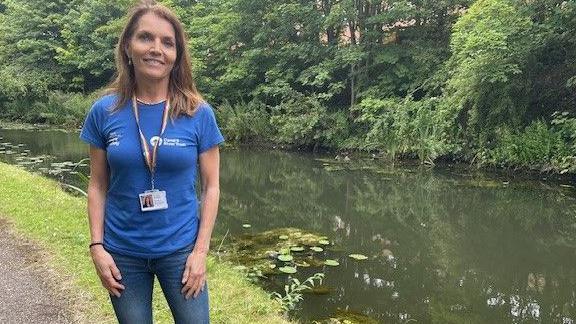
Canal & River Trust regional director Henriette Breukelaar urged people to donate to a crowdfunding appeal which hopes to raise £10,000
Metal finishing firm Anochrome Ltd admitted it was the source of the spill last Monday, and said it had worked with investigating authorities all last week.
The trust is now asking for donations to help the canal and surrounding wildlife recover, which it fears could take years.
"We know that so many people share our outrage at what happened last week and will want to help the response," said CRT regional director Henriette Breukelaar.
"The chemical spill on the Walsall Canal has been extremely distressing, and has caused great harm to local wildlife.
"Of course, the company responsible should pay, but the timing and outcome of the investigation by the Environment Agency (EA) is uncertain, and we must act now to protect nature as best we can."
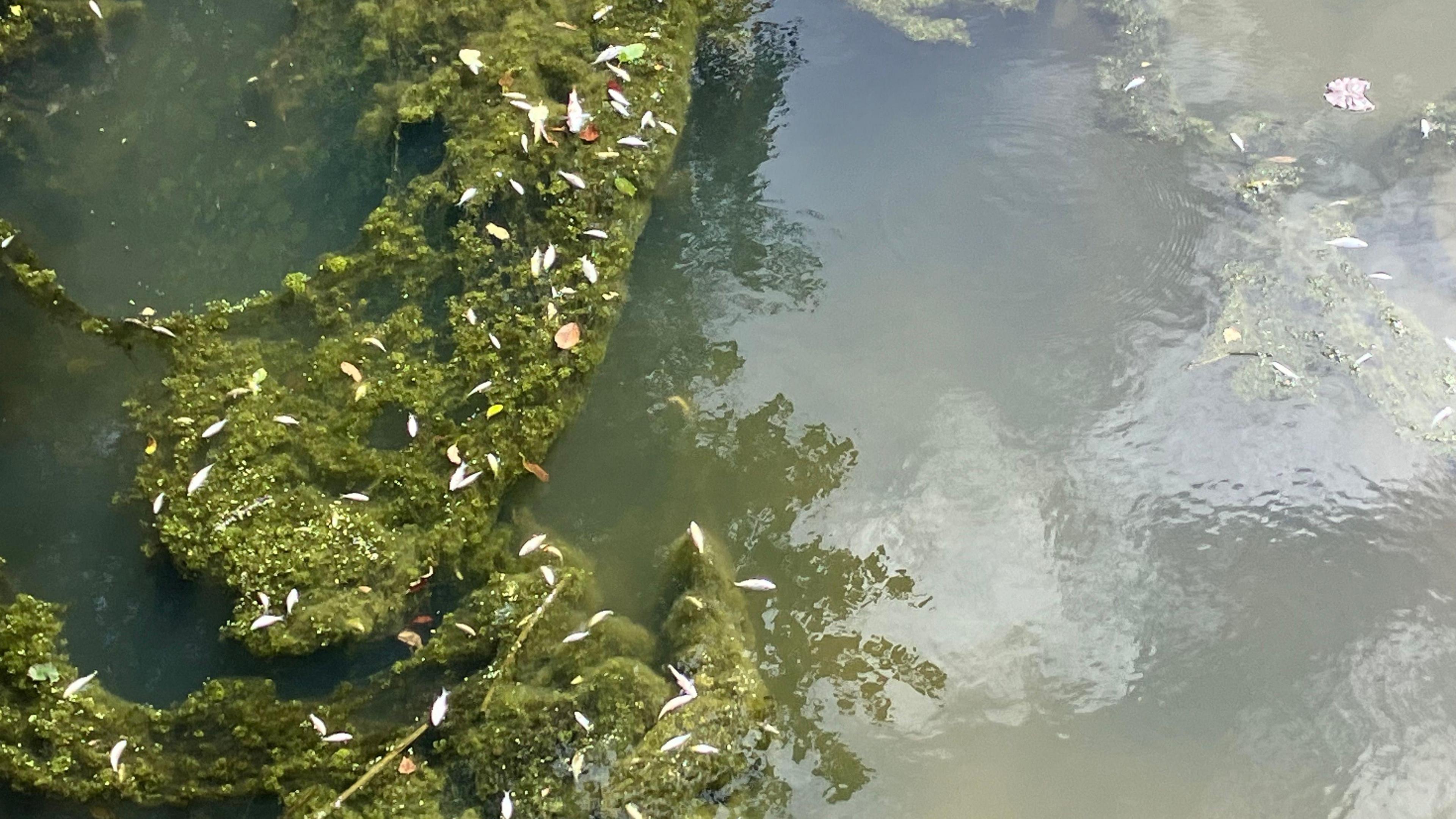
At least 100 dead fish were seen on the surface of the canal, near Anochrome Ltd's site in Reservoir Place, Walsall
The canal was closed when elevated levels of sodium cyanide and zinc was detected, following the spillage on 12 August
The cordon was later reduced to 1km, where a section from James Bridge on Bentley Mill Way, Darlaston to Rollingmill Street in Walsall remained closed.
Anochrome Ltd confirmed it had immediately informed the EA and Severn Trent Water about the spill.
The CRT said this had triggered a "swift emergency response", with the EA, Walsall and Sandwell Councils, UK Health Health Security Agency and water firm Severn Trent, working round the clock to contain contamination.
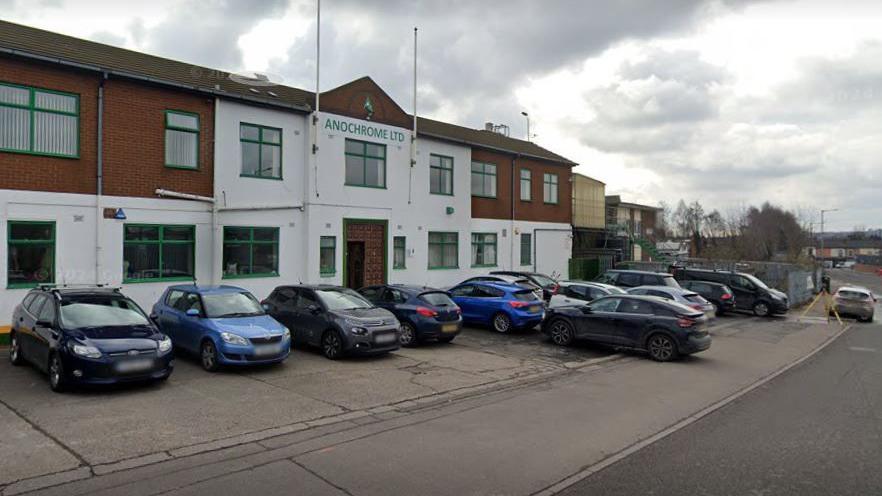
The Environment Agency has visited the site of metal finisher Anochrome Ltd in Pleck, Walsall
Earlier, the trust said laboratory testing showed water quality was within public health guidelines, in significant stretches of the canal that were initially closed, but have now been reopened.
However, people are still being reminded not to remove and eat any fish they might catch in the canal.
"Although we hope cyanide levels will fall, we are exploring all potential remediation techniques that may be required in the future," a trust spokesperson added.
"The impact of the chemical spillage has been relatively contained.
"Field observations and laboratory testing indicate the pollution is contained by temporary dams constructed in the canal by the Canal and River Trust."
'Take years to recover'
CRT ecologist Paul Wilkinson said the overall impact on wildlife remained uncertain.
"Sadly, we expect the aquatic ecosystem will have been devastated or lost for the section the pollution has passed through, from the smallest invertebrates right up to the otter that has a territory through that section," he said.
"Without natural balance, invasives and algae will quickly take over: the impacts could take years to fully recover."
He added the location was the last recorded in the region for water voles.
The CRT said all donations would go towards supporting its immediate response to the incident.
The EA's investigations into what happened are continuing.
Follow BBC Birmingham on Facebook, external, X, external and Instagram. Send your story ideas to: newsonline.westmidlands@bbc.co.uk, external
- Published16 August 2024
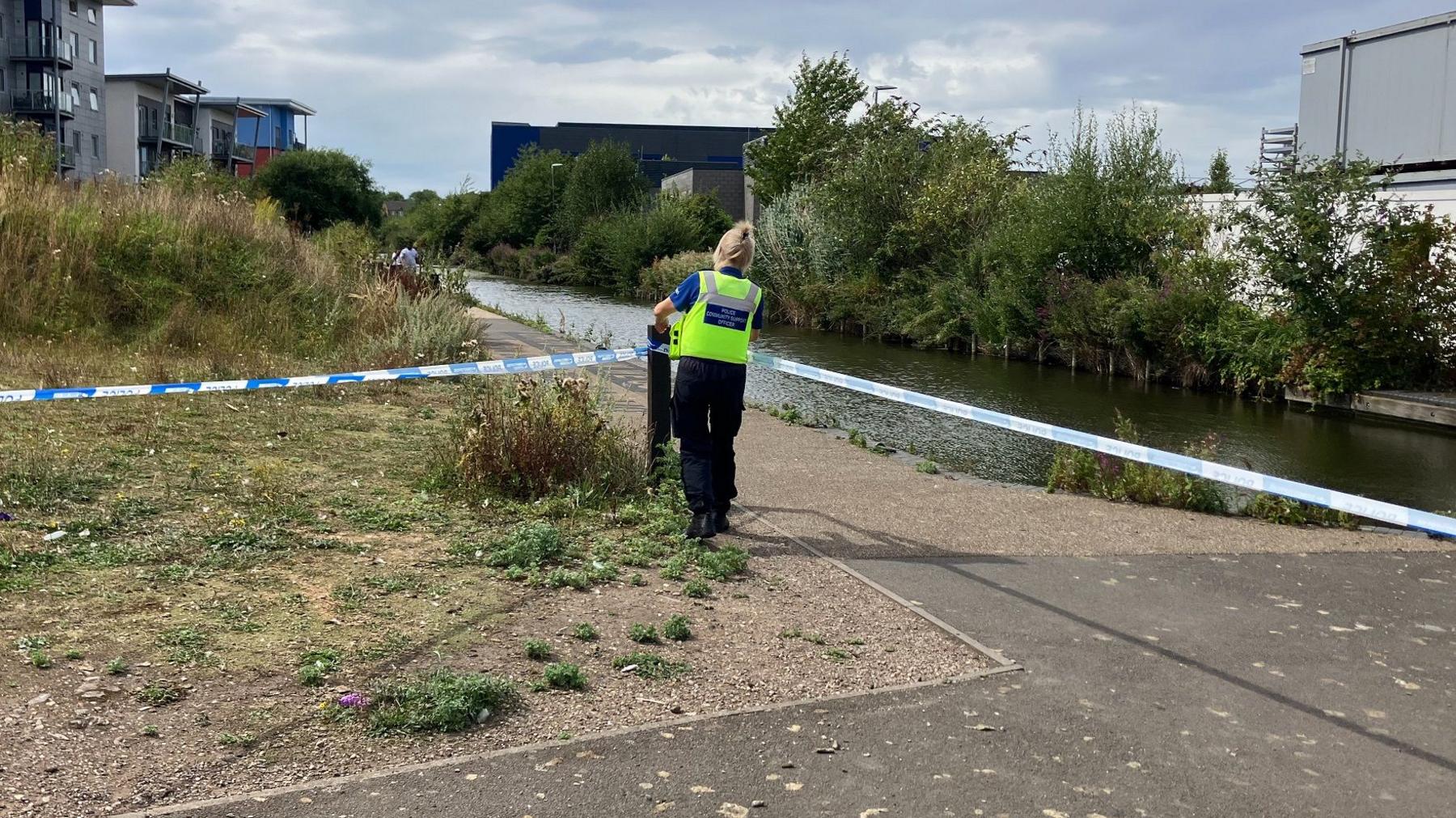
- Published15 August 2024
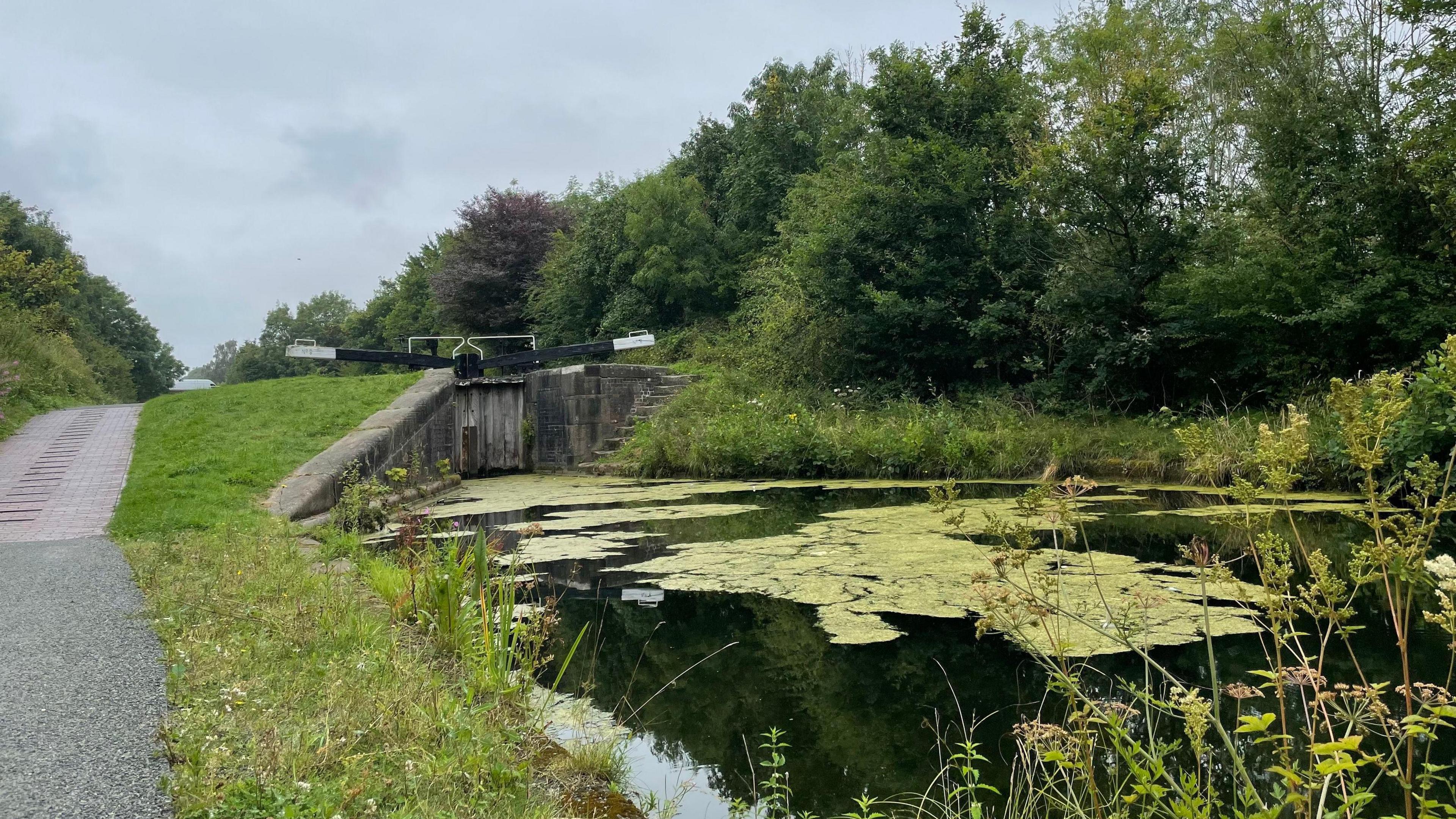
- Published14 August 2024
